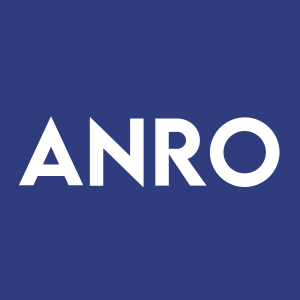Alto Neuroscience Initiates Phase 2 Study of ALTO-101, a Novel PDE4 Inhibitor, in Cognitive Impairment Associated with Schizophrenia
– ALTO-101 has been shown to positively impact cognition and key cognition-related EEG markers in humans when delivered orally –
– Novel transdermal formulation of ALTO-101 exhibited favorable pharmacokinetics and tolerability, greater drug exposure, and fewer PDE4 associated adverse events compared to ALTO-101 administered orally –
“We are excited to initiate our sixth Phase 2 study as a company, across our pipeline programs, as we continue to redefine mental healthcare with Alto’s Precision Psychiatry Platform,” said Amit Etkin, M.D., Ph.D., founder and CEO of Alto Neuroscience. “Cognitive impairment is disabling in many psychiatric disorders including schizophrenia, depression, and neurodegenerative diseases. ALTO-101 has the potential to address the cognitive aspects of these diseases with a known pro-cognitive mechanism, while also overcoming the side effects typically associated with PDE4 inhibitors. We look forward to completing this proof-of-concept study, as we believe ALTO-101 may benefit patients with CIAS and potentially become an important therapeutic option for a broad range of indications.”
Alto recently completed a Phase 1 study of ALTO-101 in healthy adults, demonstrating positive effects on cognition and electroencephalography (EEG) measures relevant to cognitive function. Alto’s novel transdermal formulation of ALTO-101 exhibited greater systemic drug exposure than orally administered ALTO-101 while also demonstrating a reduction in typical class-related adverse events.
The Phase 2 study announced today consists of a cross-over double-blind, placebo-controlled, dose-escalating treatment with ALTO-101 and placebo in patients with CIAS. Alto expects to enroll approximately 70 adult participants between 21-55 years old with schizophrenia and a demonstrable level of cognitive impairment. Alto will evaluate the effects of ALTO-101 on EEG markers relevant to cognitive function and will also explore its effects on cognitive performance. The primary outcome in the study is the effect of ALTO-101 on theta band activity as measured using EEG at the end of each dose period.
Alto recently presented data at the Society of Biological Psychiatry (SOBP) Annual Meeting demonstrating that theta band activity has both the greatest correlation with cognitive function in patients with schizophrenia among a comprehensive set of EEG measures as well as greatest case-control sensitivity. The findings on these measures, which were prospectively replicated, support the suitability of the primary outcome measure being evaluated in the present study to demonstrate robust proof-of-concept of ALTO-101 as a potential treatment for CIAS.
About ALTO-101
ALTO-101 is a novel small molecule PDE4 inhibitor being developed for cognitive impairment associated with schizophrenia, a disease state defined by negative and cognitive symptoms with no currently available targeted treatments. Through a proprietary transdermal delivery system, ALTO-101 is designed to provide steady state concentrations to improve drug safety, tolerability, and pharmacokinetics. The proprietary transdermal delivery system for ALTO-101 has been developed in partnership with MEDRx. In Phase 1 clinical trials, ALTO-101 demonstrated human brain penetration, robust CNS-relevant pharmacodynamic effects, and was well tolerated across therapeutically relevant dose ranges.
About Cognitive Impairment Associated with Schizophrenia
Schizophrenia is a serious, persistent, and often disabling mental illness impacting how a person thinks, feels, and behaves. The illness affects nearly 24 million people worldwide, including 2.8 million people in
About Alto Neuroscience
Alto Neuroscience is a clinical-stage biopharmaceutical company with a mission to redefine psychiatry by leveraging neurobiology to develop personalized and highly effective treatment options. Alto’s Precision Psychiatry Platform™ measures brain biomarkers by analyzing EEG activity, neurocognitive assessments, wearable data, and other factors to better identify which patients are more likely to respond to Alto product candidates. Alto’s clinical-stage pipeline includes novel drug candidates in depression, PTSD, schizophrenia, and other mental health conditions. For more information, visit www.altoneuroscience.com or follow Alto on X.
Forward Looking Statements
This press release may contain forward-looking statements made pursuant to the safe harbor provisions of the Private Securities Litigation Reform Act of 1995. These statements may be identified by words such as “aims,” “anticipates,” “believes,” “could,” “estimates,” “expects,” “forecasts,” “goal,” “intends,” “may,” “plans,” “possible,” “potential,” “seeks,” “will” and variations of these words or similar expressions that are intended to identify forward-looking statements, although not all forward-looking statements contain these words. Forward-looking statements in this press release include, but are not limited to, statements regarding Alto’s expectations for the timing, design, and results of the ALTO-101 study, and the number of subjects to be enrolled in the study. Actual results or events could differ materially from the plans, intentions and expectations disclosed in these forward-looking statements as a result of various factors, including uncertainties inherent in the design, initiation, progress and completion of the ALTO-101 study and clinical development of ALTO-101; the risk that Alto may not achieve the targeted enrollment in the ALTO-101 study or that enrollment may take longer than expected; the availability and timing of results from the ALTO-101 study; and other important factors, any of which could cause Alto’s actual results to differ from those contained in the forward-looking statements, which are described in greater detail in the section titled “Risk Factors” in Alto’s Quarterly Report on Form 10-Q for the fiscal quarter ended March 31, 2024 filed with the Securities and Exchange Commission (“SEC”) as well as in other filings Alto may make with the SEC in the future. Any forward-looking statements contained in this press release speak only as of the date hereof, and Alto expressly disclaims any obligation to update any forward-looking statements contained herein, whether because of any new information, future events, changed circumstances or otherwise, except as required by law.
View source version on businesswire.com: https://www.businesswire.com/news/home/20240620742565/en/
Investor Contact
Nick Smith
investors@altoneuroscience.com
Media Contact
Jordann Merkert
media@altoneuroscience.com
Source: Alto Neuroscience, Inc.







